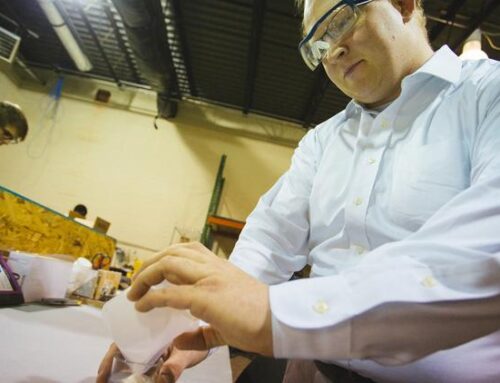Investors and incubators share the most brilliant companies that have caught their attention this year.
Entrepreneur Magazine Staff Contributor
May 31, 2018 8 min read
This story appears in the June 2018 issue of Entrepreneur.
What are investors most excited about? Entrepreneurs want to know, so… we asked them! We surveyed the VC and incubator community, requesting the most brilliant companies that have caught their attention this year (but that they have no connection to). The response was big — and notably varied. As part of our 100 Brilliant Companies list, we whittled their responses down to 20 companies that seem most poised for lasting success.
Related: 10 Genius Marketing Campaigns That Went Viral
The following companies were nominated by at least one of the following: BBG Ventures, Chobani Incubator, The Company Lab, Felix Capital, Forerunner Ventures, Good Growth Capital, Greylock Partners, Hello Alice, Hood Incubator, ICONYC Labs, Innovate Birmingham, Rise of the Rest, Lean Startup Co., Loud Capital, Muse Capital, NCT Ventures, RetailXelerator, Upfront Ventures and Wake County Economic Development.
Hatch Apps
The D.C.-based startup Hatch Apps launched earlier this year, offering a kind of Squarespace for apps: a platform where building an app is as simple as clicking on templates, and the cost can be as low as $1,000 a month to maintain.
Tethis
In 2012, three North Carolina State grad students launched Tethis to create biodegradable absorption materials, creating a product that sucks up salt, as a way to clean water after fracking. But then it turned to diapers, developing a more eco-friendly approach to a product that typically uses oil-based absorption materials and constitutes up to 1.4 percent of all landfill waste. Major diaper companies took note, and in February, Tethis closed a $17.6 million Series C to fund the testing. Now it’s time to fill those diapers.
Trumbull Unmanned
This female-veteran-owned, Houston-based drone company has a thesis: The energy industry can be more environmentally friendly if it has the right data. So Trumbull’s drones fly above, say, an oil spill to detail the damage, or a large pipeline to search for potential damage, or even whale migration so Exxon can plan its offshore operations. In 2017, the company stretched its proverbial wings and provided critical support after Hurricane Harvey, and expanded its operations to Canada and Australia.
HQ
It’s a perfectly simple idea: live, online trivia events in which hundreds of thousands compete, watching with glee as competitors are eliminated with each question. Those who win share a jackpot. Copycats now abound, so HQ has solidified its market position and increased its jackpots by seeking sponsors. First up, Warner Bros., which paid HQ $3 million to promote films like Ready Player One.
CVS Health
When CVS Health announced it would buy healthcare provider Aetna for $69 billion, the drugstore owner took a bold step toward the future. Together, the companies can provide expanded care options, likely meaning fewer doctor’s office visits for patients, thanks to consultations at retail clinics or via telemedicine.
Amazon
Where to even begin? The $13.7 billion purchase of Whole Foods? The continuing success of Amazon Studios? The public competition for its new headquarters? Amazon Restaurants taking a run at Seamless? Its two-hour delivery service? Drones? Alexa? Hitting 100 million paying Prime members? Amazon has woven its tentacles into every corner of the world — White House hostility be damned — all while posting a profit for 12 straight quarters.
Robinhood
Prior to 2018, if you traded cryptocurrency, you probably used Coinbase and paid it 4 percent on each trade. Then came Robinhood with a deal: 0 percent. A million people signed up. The company’s goal is to entice users to join for crypto but eventually use its stock-trading service — which is also free, thanks to the fact that Robinhood runs lean, making its money from subscriptions and interest generated by the cash users keep with them.
GOAT + Flight Club
As further evidence that the future of retail isn’t brick-and-mortar or web but a seamless marriage of both, the world’s leading sneaker resellers — Flight Club and the online GOAT — merged this year. The sneaker resale market is blowing up, and combined, these brands can offer sneakerheads a bigger selection of certified products.
Beam Dental
All the dental-benefits company’s plans include Beam Perks, a service that sends toothbrushes, toothpaste and floss to members every quarter — a much more effective reminder to take care of your gums than those stress-inducing visits to the dentist.
Planet Fundraiser
Businesses are often eager to help local schools’ and clubs’ fund-raising efforts but don’t always have the bandwidth to make it happen. This startup is filling that gap. Once a merchant signs on, anyone can shop, scan their receipt with the Planet Fundraiser app and select a cause to receive a portion of the purchase. It plans to expand to 20 markets by the end of 2018.
SpaceX
If you, like most folks, paused on February 6 to watch SpaceX Falcon Heavy’s test flight, you already get the point here. Let’s just say it: That was awesome! A rocket that can carry 64 metric tons into space went up and came back down perfectly. Two months later, its Falcon 9 rocket brought a planet-seeking NASA satellite into space. And SpaceX maintains the best is still around the corner: a rocket that’ll reach Mars by 2022.
Bumble
Bumble — which started as a dating app and has evolved to also be a friendship and networking app — took its network offline in 2017 with the launch of Hive, a series of physical pop-up spaces where users can connect in the real world. Hive is both an event space and a co-working space, and successful installments in New York, London and Los Angeles were open to Bumble users for free on a first-come, first-served basis.
Bird
Did the world really need an Uber for electric scooters? With $115 million in funding, the Santa Monica-based Bird has investors’ answer. In California, people in need of last-mile transportation have been flocking to the scooter-sharing startup, founded by former Uber and Lyft exec Travis VanderZanden. Though municipalities have been less than thrilled by the sudden flood of people zipping around on the vehicles, Bird continues to fly.
Science 37
Launched by doctors Noah Craft and Belinda Tan, Science 37 allows drugmakers to conduct clinical trials remotely via smartphone. This eliminates the need for office visits, which opens up trials to a far more diverse population than has historically been the case. The three-year-old company had its big break this year when drug giant Novartis signed a three-year deal for 10 clinical trials.
BuildingConnected
The construction industry isn’t exactly known for its speed, but that’s largely because there are so many moving parts and so much red tape — even for small projects. BuildingConnected aims to streamline the preconstruction phase of any building work, creating software to help contractors connect with (quality!) vendors and keep track of all active bids.
MongoDB
The open-source database-software company serves businesses that need to store large amounts of data (and access it quickly). But plenty of today’s companies deal with unstructured data based on user behavior rather than hard facts. MongoDB, which had a successful IPO last fall, categorizes and analyzes that information, giving businesses the chance to iterate and test new products and features, fast.
Dearduck
The average online shopper’s conversion rate is just 3 percent. Dearduck founder Katy Aucoin thought she could boost that number with online polls — questions that would lead to product recommendations. But recently, she pivoted to B2B. Now Dearduck provides those polls to brands, whose own shoppers take them. Buzzy startups including Mouth and Pupjoy have signed up.
Root Insurance
With car insurance, we all think we’re getting taken for a ride. Root, the insurance company that operates entirely via mobile technology, aims to build trust by basing offers on potential customers’ driving habits, which its app monitors for weeks before delivering a quote. The company is available in 16 states and is planning for nationwide coverage by 2019. It claims Root helps drivers save up to 52 percent — and investors are excited, pouring $51 million into a round it closed in March.
Roblox
The appeal of playing Roblox is clear. It’s an open-ended, online, 3-D world in which kids can make their own characters, play games, build things — whatever they want. But the real genius is in the creative side: Roblox is user-generated, with creators making games and getting cash for them. Last year, 11 million people did so. And 50 million kids play every month, which, according to ComScore analysis, places Roblox behind only YouTube for kids under 18.
Pendo
Pendo’s SaaS platform and newly launched product cloud provides both analytics and messaging capabilities, helping software developers better understand — and communicate with — their users in real time, thanks to in-app messages requesting feedback on targeted features.





